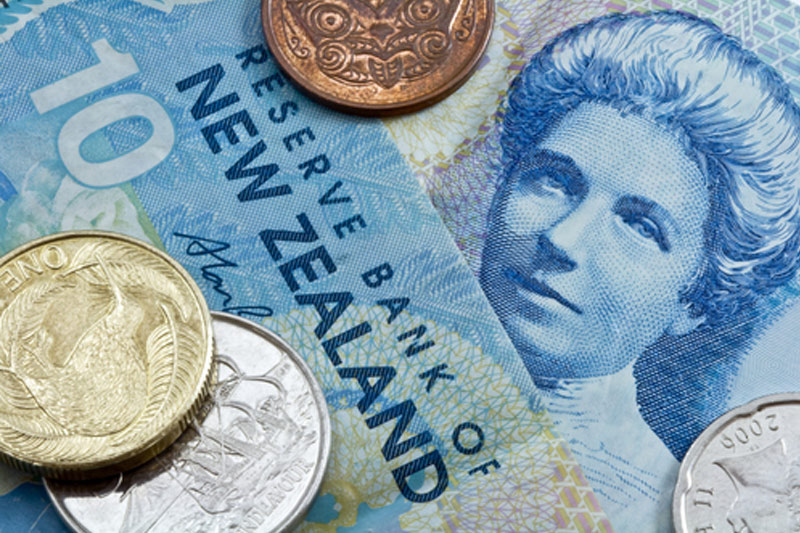* Dlr/yen up from near 10-wk lows, capped before US-Japan summit
* Treasury yields pinned near multi-week lows, limits dollar gains
* Kiwi hit after RBNZ says tightening could be at least 2 yrs away (Updates prices, adds details and quotes)
By Shinichi Saoshiro
TOKYO, Feb 9 (Reuters) - The dollar managed to stabilise on Thursday after the previous session's slide, although lingering risk aversion pinned Treasury yields near multi-week lows and restrained the greenback's bounce.
The euro was down 0.1 percent at $1.0678 EUR= , edging back towards a one-week low of $1.0640 reached on Wednesday on heightened European political woes.
The dollar rose 0.3 percent to 112.265 yen JPY= after nearing a 10-week low of 111.590 the previous day. The greenback was hit as Treasury yields slid sharply overnight.
The dollar index against a basket of major currencies was up 0.1 percent at 100.370 .DXY .
The index rose to a 14-year high of 103.820 in January on hopes of large fiscal spending and other pro-growth policies under U.S. President Donald Trump. But it has dropped since of late on Trump's protectionist trade rhetoric and perceived support for a weaker dollar.
"We are now in a phase where downside risks to the dollar has become predominant, with the drop in Treasury yields having gained further momentum this week due to perceived European political risks," said Junichi Ishikawa, senior forex strategist at IG Securities in Tokyo.
Treasury yields were stuck near a multiple-week low set on Wednesday.
Buying of U.S. Treasuries gathered steam this week as expectations for a March interest rate hike by the Federal Reserve have waned.
Uncertainty about European politics has also boosted Treasuries. Recent polls have shown German Chancellor Angela Merkel falling behind a candidate from the country's Social Democrats in this year's elections. Polls have also suggested France's Marine Le Pen, who has championed pulling the country out of the European Union, is gaining ground.
Knocked by the slide in U.S. yields, the dollar has also come under pressure against the safe-haven Japanese yen in the wake of geopolitical concerns.
The yen could be poised for further gains should Trump reiterate his opposition to a strong dollar when he meets Japanese Prime Minister Shinzo Abe at a two-day summit starting on Friday.
"Trump may opt to take a tough stance against Japan amid the perceived political chaos. Taking such a stance would also set him up to talk tough with China," Ishikawa at IG Securities said.
Trump and his top trade adviser Peter Navarro criticised Germany, Japan and China last week, saying the trading partners were engaged in devaluing their currencies to the disadvantage of the United States.
The currency market also kept a wary eye on gyrations in the Japanese government bond market, where yields climbed to one-year highs last week before the Bank of Japan arrested the rise by conducting a series of debt-buying operations.
The dollar gained steadily against the yen last year on expectations that U.S.-Japanese interest rate differentials would widen. Last week's rise in Japanese yields dented the dollar by challenging this dynamic.
"The recent fluctuations in JGBs have added to the currency market's list of concerns. It was a little unexpected as few thought JGBs would play such a role," said Masashi Murata, senior strategist at Brown Brothers Harriman.
"But while such risk events may lead to yen buying, it is unlikely to constitute a long-term trend as we have to keep in mind that the global economy is expanding steadily."
The New Zealand dollar was down 0.8 percent at $0.7201 NZD=D4 , pulling away from a three-month high of $0.7375 hit earlier this week. AUD/
The kiwi fell after the Reserve Bank of New Zealand (RBNZ) kept rates at a record low of 1.75 percent on Thursday, as expected, and said that any tightening in policy might be at least two years away. Australian dollar suffered collateral damage and last traded at $0.7615 AUD=D4 , down 0.4 percent on the day. (Editing by Jacqueline Wong & Shri Navaratnam)
